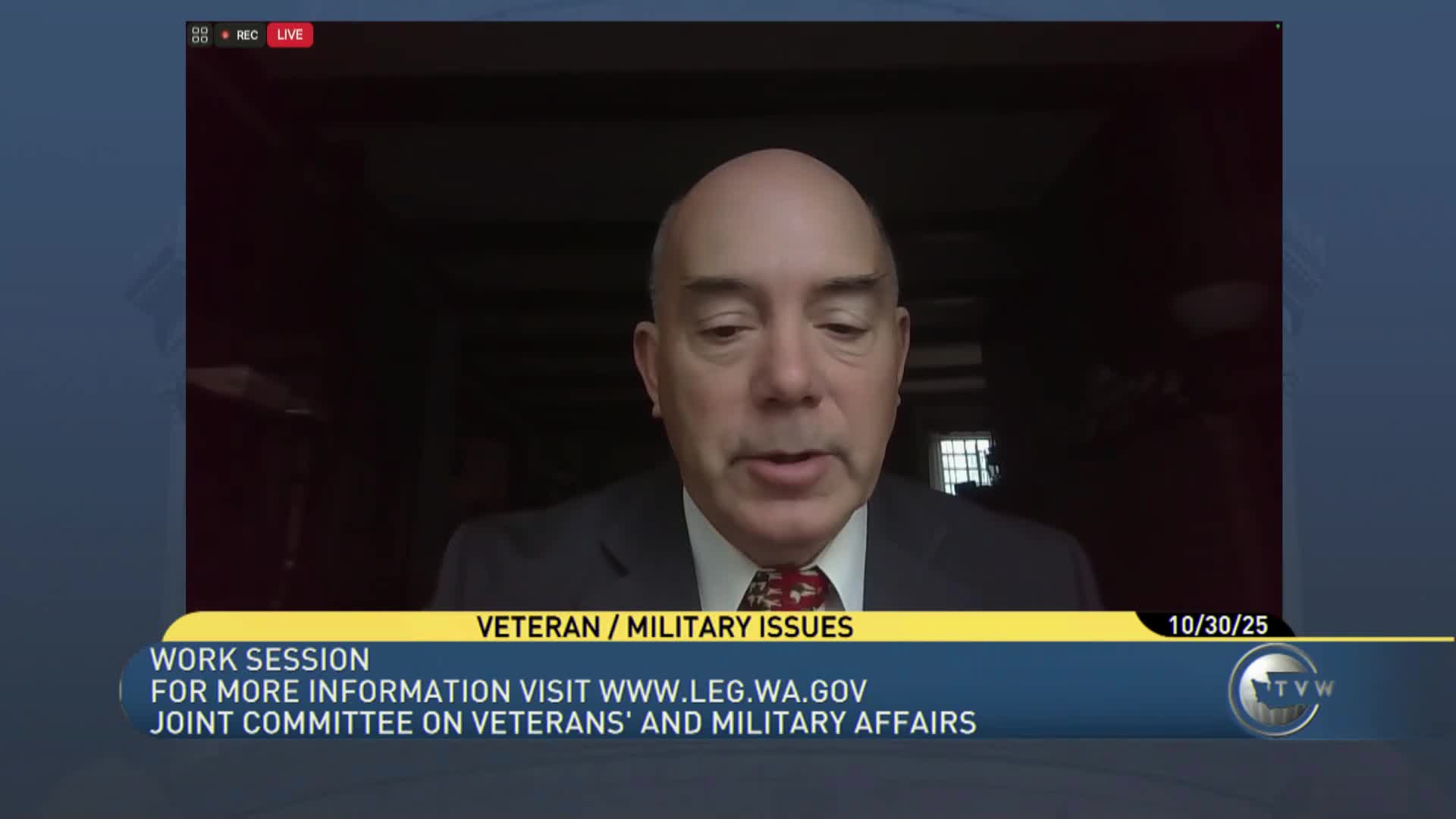Washington veterans agency outlines Tri‑Cities cemetery plan, Spokane home replacement and budget cuts
Get AI-powered insights, summaries, and transcripts
Subscribe
Summary
David Puente, director of the Washington State Department of Veterans Affairs, updated the committee on a proposed Tri‑Cities state veterans cemetery, the Spokane Veterans Home replacement project, and agency budget reductions that have reduced outreach and counseling capacity.
David Puente, director of the Washington State Department of Veterans Affairs, briefed the Joint Committee on Military and Veterans Affairs on three linked items: a proposed state veterans cemetery to serve the Tri‑Cities region, progress on a replacement Spokane Veterans Home, and the impacts of recent agency budget reductions.
Puente said the federal Department of Veterans Affairs identified a 75‑mile radius in which a new state cemetery would improve access for veterans; WDVA’s feasibility work estimates the site could serve about 46,000 veterans and yield roughly 400 internments annually. He said the federal VA will fund a large share of startup costs (Puente described an initial federal share of up to 90% with later reimbursement of the state match) and that the agency received $500,000 from the state for a predesign study. Two parcels in Richland/West Richland are under consideration; Puente said the predesign is expected by March 2026 and a purchase and sale could be pursued in April 2027 if the legislature approves land purchase funding.
On the Spokane Veterans Home replacement, Puente said the agency is negotiating to buy roughly 42 acres and expects to sign a land‑purchase agreement the week of Nov. 3. WDVA’s predesign follows the U.S. Department of Veterans Affairs "small house" model, with multiple 20‑bed household units around a central hub; Puente said the proposed replacement would have about 120 beds and is designed to provide single‑occupancy, home‑like rooms and improved outdoor space. He said WDVA’s capital request for a replacement was about $162,000,000 and that the VA construction grant program would pay an estimated 65% of the build, leaving a 35% state match requirement.
Puente described potential reuse of the current downtown Spokane facility—transitional housing or an adult day health care pilot—and noted local partners have expressed interest in supporting site infrastructure. He said the state’s share of utility and access improvements for the new site could be on the order of $7–8 million and that local partners (the city, county and schools) have been engaged.
On budget impacts, Puente said WDVA faced about $3.2 million in reductions and is holding 17 positions vacant. He said the agency absorbed an $861,000 reduction to veteran services and counseling that reduced available outreach and rural service capacity, and that counseling and emergency financial assistance programs were cut by roughly $100,000 each. In response, WDVA increased private‑pay rates for residents by about 8% (Puente reported a change from $355 per day to roughly $407 per day in one home) to offset some revenue loss.
Committee members asked WDVA for more detailed accounting of the program cuts and their impacts, and for continued follow‑up on federal funding and priorities for veterans’ wellness. Puente said the agency would continue seeking federal and local partners and might request additional state general‑fund support to operate a second state veterans cemetery because revenue from the armed‑forces license‑plate fund does not cover operations for an additional cemetery.
